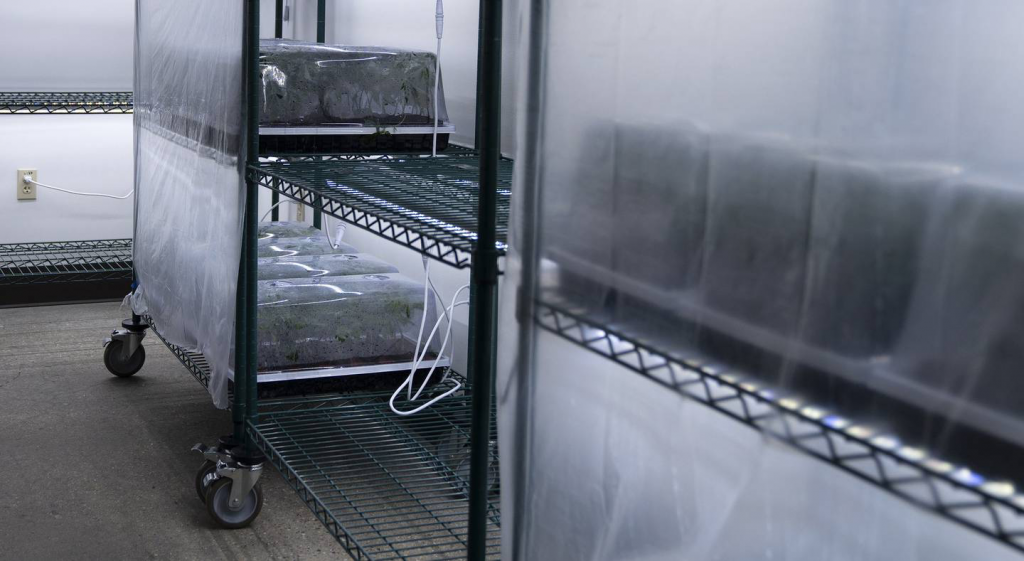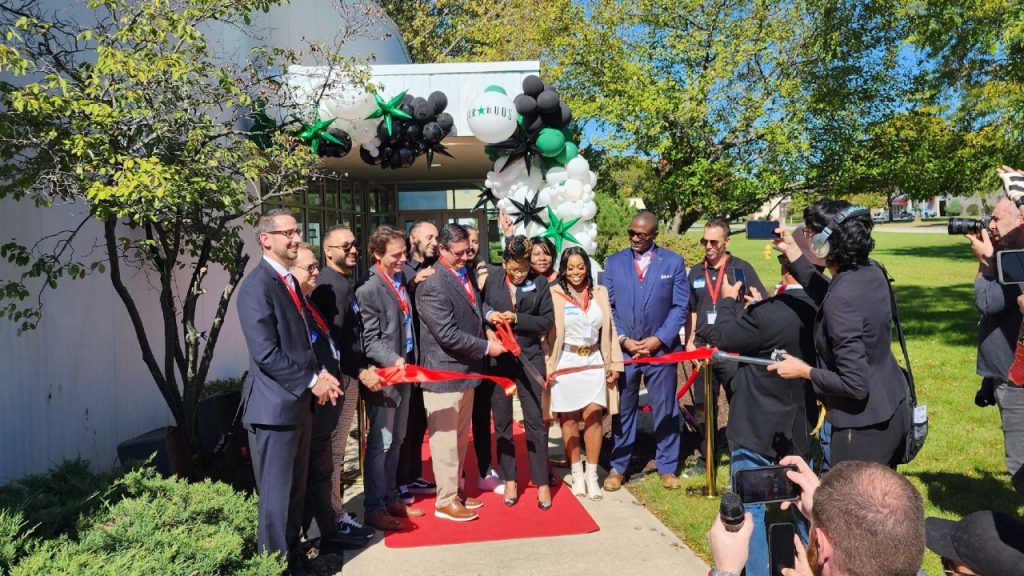
Inside a cavernous warehouse in Rockford, behind three sets of locked doors, hundreds of tiny cannabis seedlings grow. They are the initial crop cultivated in Illinois by Star Buds, which on Monday became the first licensed predominantly Black-owned cannabis business and the first craft grower to open its doors in the state.
As a craft grower, the business is severely limited in size compared with existing growers. But its launch also served as inspiration for hundreds of other cannabis business owners in Illinois, still trying to get off the ground.
“It required persistence,” CEO Victoria Williams said. “I’m so proud to show people that it can be done.”
The corporate entity, SB IL Grow LLC, is two-thirds Black-owned, officials said. It is doing business as partners with Star Buds, an established weed company from out of state that had the experience to help get the venture started here.

Star Buds began in Colorado in 2013, and operates pot grows and dispensaries in multiple states and countries, including Jamaica. Local co-owner Ahmad Joudeh, of Palos Hills, who owned a chain of T-Mobile shops in the Chicago area, had family members at Star Buds, and formed a multiracial partnership.
Another six or so craft cannabis growers — limited to 5,000 square feet of flowering plants — are expected to open in the coming months, with another dozen getting ready behind them. That leaves another 70 craft growers that have yet to get going, along with hundreds of infusers, transporters and retail stores, as many struggle to get funding.
Unlike dispensary licenses, which may not be sold until they open for business, some craft growers are looking to sell their licenses.
The licensing process in Illinois got delayed repeatedly in Illinois due to complications from the COVID pandemic, claims of unfairness in scoring the applications, and lawsuits.
It took Star Buds nearly two years to get a license, then another year to buy and retrofit a warehouse in an industrial park. After previous plans to locate in Aurora went nowhere, officials settled in Rockford, where city officials cooperated to make it happen.


The warehouse remains mostly empty except for one room where 600 six-inch plant cuttings, or clones, grow. After five weeks they’ll be transferred to a bigger room to mature or “vegetate” for five more weeks, followed by eight weeks under alternating 12 hours of light and darkness. That will simulate day and night to trigger the growth of flowering buds containing THC, the main psychoactive component that gets users high.
After curing, trimming and packing, it will be six months in all before Star Buds’ Kaviar brand hits licensed dispensary shelves around the state.
The growing area may be increased in 3,000-square-foot increments up to 14,000 square feet, a process that David Lakeman, head of the Illinois Department of Agriculture’s cannabis and hemp division, said could be done in six months to a year.

That’s encouraging for craft growers, who’ve said they can’t get investors for only 5,000 square feet. For now, they remain tiny next to the 210,000 square feet allowed for each of the 21 established full-size growers. If all 88 craft growers opened, they’d still only be comparable in size to about two of the big growers — but with none of the name recognition, yet.

“In some ways, that’s an advantage,” co-founder Brian Ruden said. “We can give the plants more attention, and focus on quality versus quantity.”
